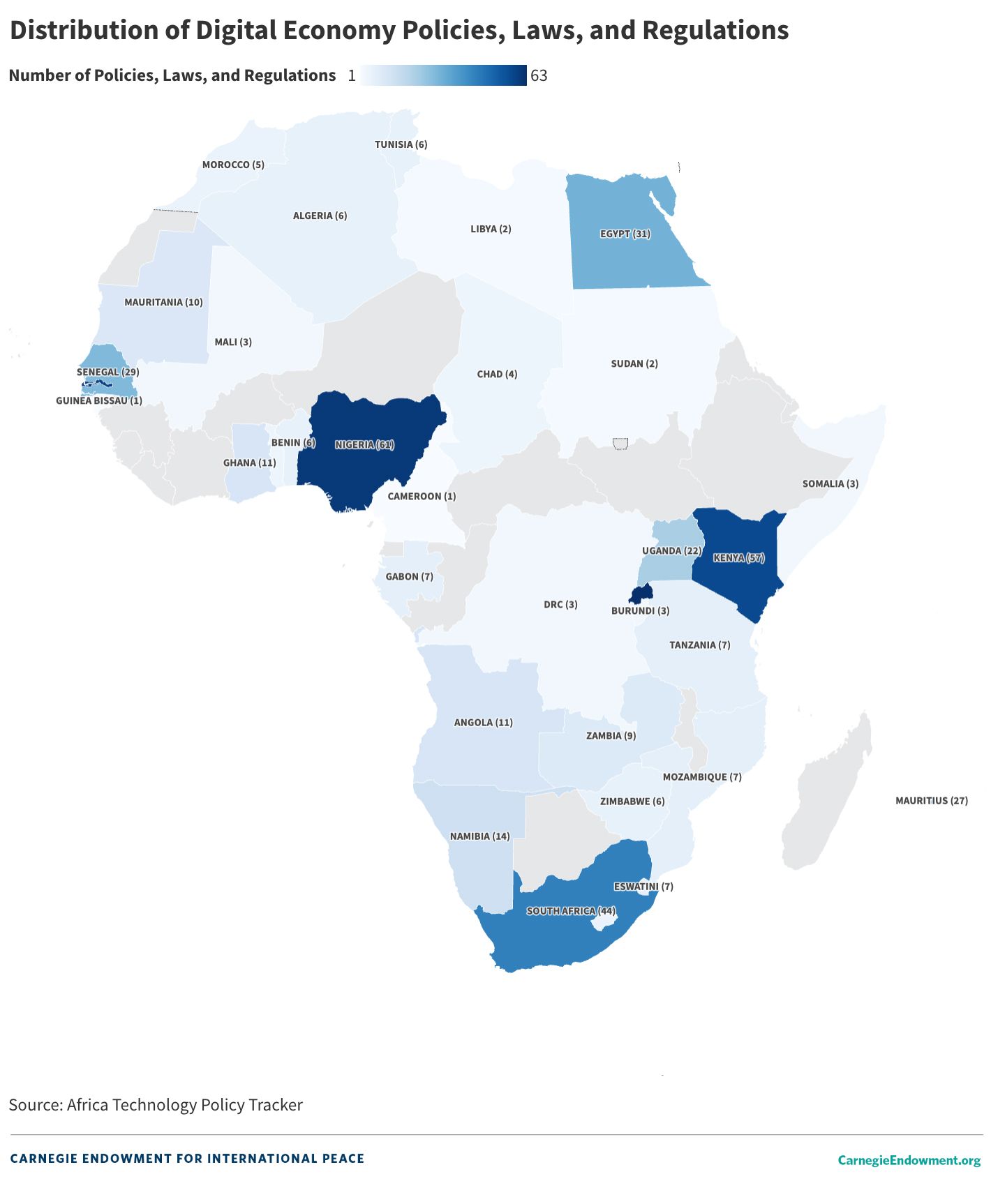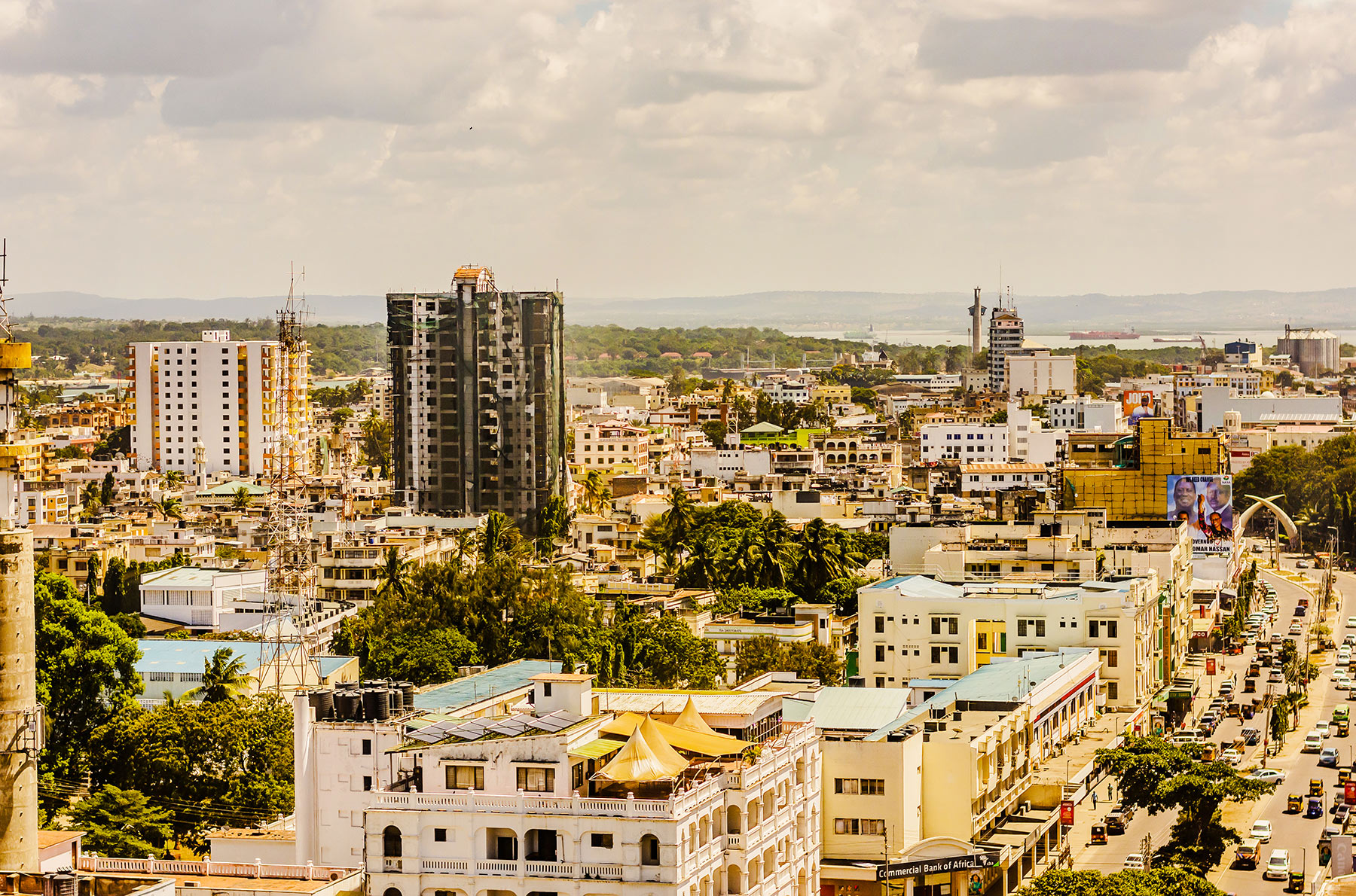December 2024
Dear friends,
As 2024 comes to a close, the Africa Program reflects on the past year and looks forward to the year ahead.
But first, we are excited to announce the release of our compendium of recommendations that outlines Priorities for the Next U.S. Administration and Congress on Strengthening the U.S. Economic Relationship with Africa. In thirteen chapters, written by scholars and researchers within Carnegie’s Africa Program, this compendium offers the incoming administration, their transition team, and the next Congress digestible, fact-based, and policy-relevant issue summaries and recommendations. We cover trade, the Lobito corridor project, and other initiatives on minerals-based industrialization, health assistance, energy security compacts, multilateral development banks, constructive engagement in West Africa and the Sahel, global economic governance, reform of international student visas, mid- and high-level diplomacy, digital diplomacy, and U.S.-China competition in Africa.
Overall, we are incredibly proud of our impactful publications as well as our convening and participating in policy dialogues throughout the year. In both private and public conversations, the Africa Program spoke with U.S. government officials, private sector actors, and members of the African and European diplomatic corps on the issues critical to the future of the continent. We cohosted a roundtable on AI as part of the official program during the Summit of the Future Action Days at the seventy-ninth session of the United Nations General Assembly in New York City.
This year has seen the publication of work across all our workstreams. Building on the success of our landmark publication, “How Can African Countries Participate in U.S. Clean Energy Supply Chains?,” we developed and published another piece, “How the AGOA Reauthorization Process Could Help Diversify U.S. Critical Mineral Supplies.” Other highlights this year include our Africa-Europe relations compendium, Why Europe Needs Africa; our work on U.S. infrastructure investment in Africa, “Getting Real: How the United States Can Deliver on Its Commitment to African Infrastructure”; an examination into the various African blocs and groups at COP, “Who Speaks for Africa at COP? Power and Politics at the UN Climate Negotiations”; analysis of China’s relations with Africa in an article, “How Is China’s Economic Transition Affecting Its Relations With Africa?,” and a commentary, “What FOCAC 2024 Reveals About the Future of China-Africa Relations”; and the recently released companion piece for the Africa Technology Policy Tracker.
We also hosted several exciting program events this year! In the summer, we hosted our first-ever Carnegie Africa Forum. Nearly 900 guests joined us in person at the Woolly Mammoth Theater and online for a full day of panels, performances, and debates on topics including Africa’s role in the global energy transition, the consequences of changing geopolitical alignments for African nations, and the future of AI on the continent. In the spring, we hosted former South African minister of foreign affairs Naledi Pandor for a conversation on the U.S.–South Africa relationship. Pandor characterized the U.S.–South Africa relationship by the shared value of democracy, urging that the strategic relationship between the two countries “will continue and must continue.” Then we hosted a conversation with London School of Economics professor David Luke focused on the trade relationship between the United States and Africa. He emphasized the urgency of renewing the African Growth and Opportunity Act, advancing the African Continental Free Trade Area, and increasing investments in trade and the global energy transition.
In the fall, we hosted a discussion on what approach President-elect Donald Trump’s administration will take toward foreign policy in Africa. The event, called “What Comes Next? Insights Into the Future of U.S.-Africa Relations Under a New Trump Administration,” brought together officials from the previous Trump administration to offer their insight and suggestions on the future of U.S. policy toward Africa. In the winter, we launched the Africa Technology Policy Tracker (AfTech)—the first-ever continent-wide aggregation of digital economy laws, policies, and regulations. AfTech covers the period from 1988 to 2024 and has found a consistent rise in the quantity of documents pertaining to the digital economy. To date, AfTech has compiled 217 policies, 170 laws, and 168 regulations, indicating a concerted effort across the continent to provide strategic digital infrastructure plans. Check out the Chart of the Month, which displays the distribution of digital economy policies, laws, and regulations across Africa. The launch event included a demonstration of AfTech, followed by a panel discussion on how African countries are governing the digital economy to foster innovation, protect consumer rights, address cybersecurity, and promote inclusive digital growth.
Over the last few months, we also welcomed five nonresident scholars: Anthony Carroll, who is the founding managing director of Acorus Capital, a private equity fund investing in Africa, and a senior advisor at Manchester Trade, Ltd., a Washington, DC–based trade and policy investment advisory firm; Ramsey Day, who is the head of strategy and business development at Lumenix USA, a leading technology firm, and previously worked as the assistant administrator for Africa at the U.S. Agency for International Development; Nicolas Lippolis, a postdoctoral researcher at the Columbia Climate School who has previously consulted with the World Bank and worked in emerging markets macroeconomic research at Goldman Sachs in London; Christian-Géraud Neema, an expert analyst on China-Africa relations and the Africa editor of the China–Global South Project; and finally, most recently, Kholofelo Kugler, an experienced international trade lawyer and specialist on African trade issues who is completing her PhD at the University of Lucerne.
This is our last newsletter for the year, but we will return with more in February 2025. In the meantime, we at the Africa Program wish you all a restful holiday season and a happy new year in advance. As always, you can follow us on LinkedIn and X (formerly Twitter) @AfricaCarnegie.
Sincerely,
Zainab Usman
Director, Carnegie Africa Program
To date, AfTech has aggregated 217 policies, 170 laws, and 168 regulations, indicating efforts across the continent to provide direction through policies and strategies and to provide guardrails through laws and regulations.

Features
TECHNOLOGY
The Carnegie Africa Program, in collaboration with the African Telecommunications Union, has developed the first-ever continent-wide repository of digital economy laws, policies, and regulations.
By Jane Munga
FOCAC
China’s domestic situation and its engagement with Africa indicate a drastic shift in China’s checkbook diplomacy approach.
By Christian-Géraud Neema
TECHNOLOGY
The coming years offer Africa an immense opportunity to evolve from an AI consumer to an AI developer, positioning itself to play a key role in shaping the future of artificial intelligence.
By Aubra Anthony, Jane Munga, and Sharmista Appaya, World Bank Blogs
U.S. ELECTION
On the heels of the 2024 U.S. presidential election, Zainab Usman speaks with Al Jazeera to discuss the impact of the incoming administration on U.S-Africa relations.
By Zainab Usman, Al Jazeera
BOTSWANA
Botswana has a new boss in President Duma Boko after an election victory over a party that has been in power since independence fifty-eight years ago. A lot is set to change, including the country’s relations with South Africa and Zimbabwe.
By Anthony Carroll, Daily Maverick
Developments on Our Radar
- Biden Looks Beyond Minerals in Visit to Angola’s Lobito Port [The Africa Report]
- Ghana to Botswana: Why African Voters Are Throwing Out Ruling Parties [Al Jazeera]
- ECOWAS Set to Formalise Departure of Mali, Burkina Faso and Niger [Africa Intelligence]
- Ngozi Okonjo‑Iweala Faces 3 Key Hurdles in Next WTO Term, Starting With Trump [The Africa Report]
- World Data Lab and the Mastercard Foundation Announce Launch of the Africa Youth Employment Clock [Mastercard Foundation]
Professional Development Opportunities
- Carnegie Endowment – Director of Government Affairs, Communications [application]
- Carnegie Endowment – Research Scholar, Technology and International Affairs [application]
